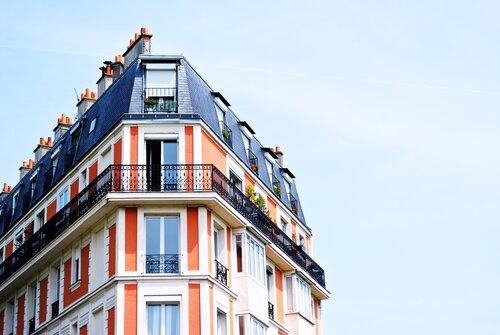Everything to Know About Buying the Freehold of a Flat
When it comes to buying the freehold of a flat, there are many things that leaseholders need to take into consideration.
To start with, it is not possible to buy the freehold of a single flat or apartment. Instead, leaseholders can group together to buy their entire building’s freehold, and that is dependent on leaseholders in blocks of flats being organised and cooperative with one another.
Together, leaseholders can purchase the freehold of their building under certain criteria, or they can informally ask their freeholder whether or not they’d be willing to sell.
Either way, even as a group, there are lots of things to know about owning a freehold property, which we’ve delved into below.
Buying the Freehold of a Leasehold Flat
Leaseholders who own flats can join together to purchase the freehold of their building by meeting certain requirements (in a formal route), or by informally asking the freeholder if they are willing to sell the freehold (informal route).
Whilst it is not something that can be done independently, it is possible and comes with a wealth of benefits.
Can you own the freehold of a flat?
As a leaseholder, you can own a share of freehold, which means you own your flat forever as well as owning a part of the common areas of the building, grounds and airspace.
Buying the freehold of a singular leasehold flat isn’t something that can be done independently. To qualify for purchasing the freehold, at least half of all other flat owners in the same block must also be willing to purchase the building’s freehold together, in return for a share of freehold.
Once formed, the collective can require the landlord or leaseholder to sell the freehold to them. Similarly, if a landlord or primary leaseholder does wish to sell, they must offer leaseholders first refusal to buy before they sell by law. To do otherwise would be a criminal offence.
Provided that the process is successful, the collective group of participating leaseholders would jointly own the freehold to the building. Commonly this takes place by forming a limited company which is owned and controlled by the flat owners. Each leaseholder is then granted a share of freehold and a perpetual lease (999 years with no ground rent!) from the new, residents-owned company which controls the freehold.
The legal eligibility requirements for leaseholders to purchase a freehold are as follows:
- The building must contain at least two flats or apartments
- Under 25% of the freehold building must be being used for non-residential purposes, i.e: an office or shop. Thegovernment is considering easing this restriction to 50%.
- Two-thirds of all leasehold flats or apartments in the building must be owned by leaseholders with long leases
- Half of all flats or apartments in the building must be owned by leaseholders willing to purchase a share of the freehold
An apartment building does not need all its residents on board to purchase the freehold. For example, if a building has seven flats, only one four flat owners would need to come together to purchase the freehold.
Buying the freehold of a block of flats
When it comes to buying the freehold of a block of flats, more than half of the residents in a block of flats must purchase the freehold. There are two routes two purchasing the freehold.
If the Landlord is selling their interest in the property to a third party, they must serve an “Offer Notice” on each tenant in the block at least two months before they intend to sell their interest. This is because leaseholders have the right of first refusal.This is a take-it-or-leave-it offer including a set sale price that is not negotiable.
If leaseholders decide to purchase the freehold, they must serve a “Claim Notice” on the freeholder who must respond with a counter notice within 2 months. Leaseholders specify their offer price which the landlord negotiate over.
Leaseholders who exercise their right to purchasing the freehold of their block of flats will be entitled to own a share of freehold, which we delve into in the section below.
What does it mean to own a share of freehold?
Owning a share of the freehold refers to a flat or apartment owner owning a share of the freehold of their entire property, building grounds and airspace.
As discussed above, because owning the freehold of a flat is not possible on an individual basis, flat owners or apartment leaseholders are instead granted the option to own a share of the buildings freehold by becoming a member of the collective group that wishes to take over the freehold of the freehold building.
If a leaseholder purchases a flat which has a share of freehold, they become a shareholder in the building.
Along with other apartment owners who own a share of the freehold, they are in control of the freehold and the management of the building. The apartments and flats within the building still remain on a leasehold basis, but shareholders have a say in how the building is managed, how work is prioritised and are able to set budgets and service charges at a desirable levels.
Things like lease extension and the granting of new long term leases becomes easier, with no ground rent required to be paid.
Our next section covers the further benefits of owning a share of the freehold and you can read our main reasons to buy your freehold.
What are the benefits of buying the freehold?
Leaseholders who own a share of the freehold have a multitude of benefits at their disposal. For example, they can extend their leases to never expire (999 years), remove their obligation to pay ground rents for themselves whilst collecting ground rent from non-shareholders, take out buildings insurance poilicies which are better or more affordable, reduce their service charges, oversee the quality of works done to the building, develop the land or roof spaces to build a flat for profit and overall take better control of how the building is managed.
Other significant benefits include:
- Lease extensions become free and can be extended to as long as 999 years at no extra cost, other than legal fees
- Freehold owners in essence become landlords, enabling them to collectively set ground rents which usually take the form of peppercorn ground rents
- Service charges can be made more affordable or better value by choosing things like higher quality service providers
- If in agreement, building terms could come with less conditions: for example, permission for leaseholders to own pets or to restrict short letting which has been made possible in modern times via short-stay accommodation providers.
- Freehold flats can add value to the building as buyers tend to prefer freehold flats to those of leasehold.
- Flats not only become more marketable when it comes time to sell but often attract higher sale prices.
What rights and responsibilities will the freeholder have?
Leaseholders that become freehold owners take on new sets of responsibilities which must be taken into account when considering purchasing the freehold of the building.
Owners of the freehold have the right to make alterations to the building, but the responsibility to maintain everything to a high standard and must meet building regulations.
Just as there are great benefits to owning a share of the freehold, there are also important rights and responsibilities, and subsequent advantages and disadvantages to consider, such as:
- Freehold owners become responsible for the functioning and maintenance of the building and its land. This means carrying out repairs, ensuring things like communal lifts, stairways and halls meet health and safety regulations, and regulartly adhering to ever changing property legislation. However, most buildings employ a managing agent for this purpose.
- Freehold owners become responsible for the leaseholders within the property, and must seek to do best by them in all matters relating to their apartment, such as service charges and living conditions and ensuring they pay ground rent (if applicable).
- Freehold owners have a responsibility to their local council and must ensure they are a responsible homeowner as a subsequence. If the building becomes ill-managed, unmaintained or attracts noise complaints, councils can take legal and financial action against the owners.
You can find out more about exactly what it means to be a freehold director in our blog.
How much does it cost to buy the freehold?
Freehold prices vary in the way that property prices do, and in line with a property market value. A general rule of thumb is however that the shorter your lease and the higher your ground rent, the pricier your share of freehold will be.
To purchase a share of your buildings freehold you will need to pay:
- The freehold purchase price (premium)
- Your own project management, legal and valuation fees
- Freeholder’s similar fees (which must be reasonable)
Wanting to purchase a share of your freehold? We can help
If you are interested in learning more about buying your freehold, you can get in touch with us via our buy your freehold contact form where we’re happy to supply you with expert help and free advice.


